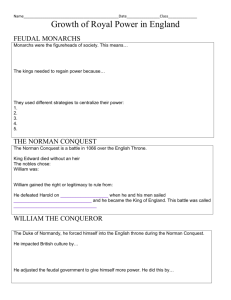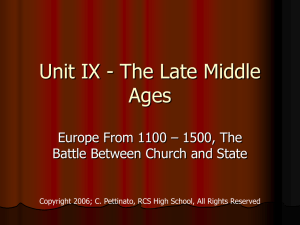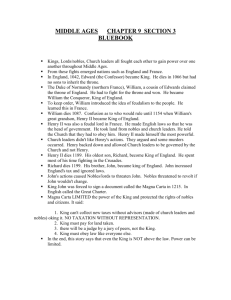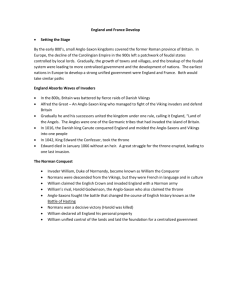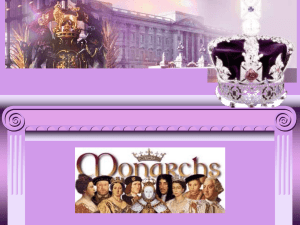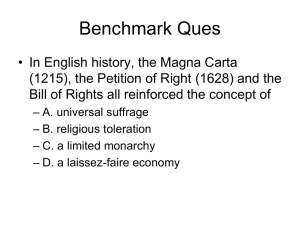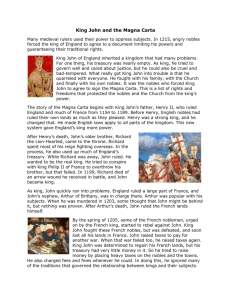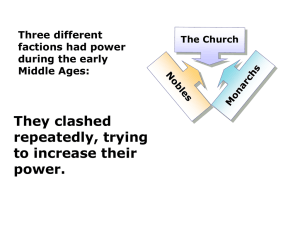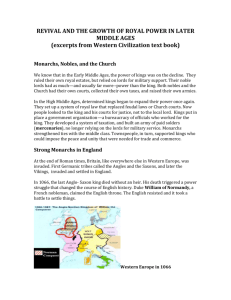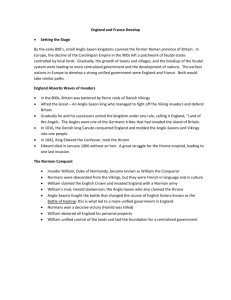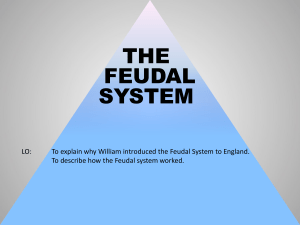Middle ages - MsRodolicoHistory
advertisement
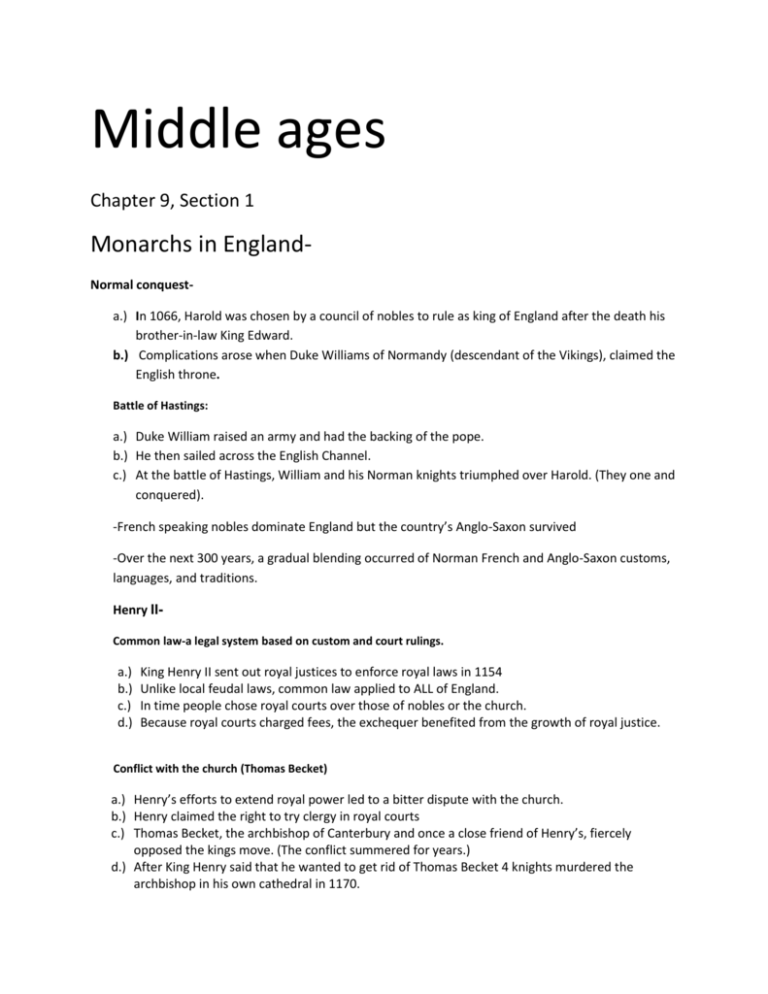
Middle ages Chapter 9, Section 1 Monarchs in EnglandNormal conquesta.) In 1066, Harold was chosen by a council of nobles to rule as king of England after the death his brother-in-law King Edward. b.) Complications arose when Duke Williams of Normandy (descendant of the Vikings), claimed the English throne. Battle of Hastings: a.) Duke William raised an army and had the backing of the pope. b.) He then sailed across the English Channel. c.) At the battle of Hastings, William and his Norman knights triumphed over Harold. (They one and conquered). -French speaking nobles dominate England but the country’s Anglo-Saxon survived -Over the next 300 years, a gradual blending occurred of Norman French and Anglo-Saxon customs, languages, and traditions. Henry IICommon law-a legal system based on custom and court rulings. a.) b.) c.) d.) King Henry II sent out royal justices to enforce royal laws in 1154 Unlike local feudal laws, common law applied to ALL of England. In time people chose royal courts over those of nobles or the church. Because royal courts charged fees, the exchequer benefited from the growth of royal justice. Conflict with the church (Thomas Becket) a.) Henry’s efforts to extend royal power led to a bitter dispute with the church. b.) Henry claimed the right to try clergy in royal courts c.) Thomas Becket, the archbishop of Canterbury and once a close friend of Henry’s, fiercely opposed the kings move. (The conflict summered for years.) d.) After King Henry said that he wanted to get rid of Thomas Becket 4 knights murdered the archbishop in his own cathedral in 1170. e.) Kind Henry denied any part in the attack. To make peace with the church he eased his attempts to regulate the clergy. f.) Becket was later honored as a martyr and declared a saint. English governmenta.) English rulers repeatedly clashed with nobles and the church. b.) Most battles developed as a result of efforts by the monarch to raise taxes or to impose royal authority over traditional feudal rights. c.) Out of those struggles evolved traditions of government that would influence the modern world. John: the son of King Henrya.) John was a clever, greedy, cruel, and untrustworthy ruler. b.) He faced three powerful enemies during his reign: kind Philip 2nd of France, pope innocent 3rd, and his own English nobles. Battles: a.) In 1205, john suffered a major setback when he lost a war with Philip 2nd and had to give up English-held lands in Anjou and Normandy. b.) Next, john battles with innocent 3rd over selecting a new archbishop of Canterbury. When john rejected the popes nominee, the pope responded by excommunicating him. He also placed England under the interdict, a papal order that forbade church services in an entire kingdom. To save himself, and his crown, john had to accept England as a fief of the papacy and pay a yearly fee to Rome. The Magna Cartaa.) In 1215, a group of rebellious barons cornered john (king) and forced him to sign the Magna Carta, or great charter. b.) In this document, the king affirmed a long list of feudal rights. c.) Besides protecting their own privileges, the barons included a few clauses recognizing the legal rights of townspeople and the church. d.) The most significant part of the Magna Carta wad a clause protecting every freeman from arbitrary arrest, imprisonment, and other legal actions, except “by legal judgment of his peers or by the law of the land.” This famous clause formed the basis of the right now known as “due to process of law.” e.) The king also agreed not to raise new taxes without first consulting his great council of lords and clergy. - The Magna Marta contained two very important ideas that in the long run would shape government traditions in England: a.) First it asserted that the nobles had certain rights. Over time, the rights that had been granted to nobles were extended to all English citizens. b.) Second, the Magna Carta made it clear that the monarch must obey the law. Parliamenta.) in keeping with the Magna Carta, English rulers often called on the great council for advice. b.) During the 1200’s, this body evolved into parliament. c.) It helped unify England. Edward 1st : In 1295, Edward 1st summoned parliament to approve money for his wars in France. He had representatives of the “common people” join with the lords and clergy. The “commons” included two knights from each county and representatives of the towns. b.) much later this assembly became known as the model parliament because it set up a.)
